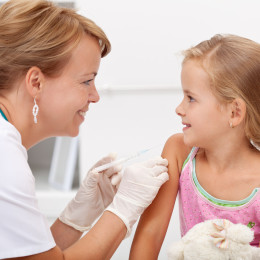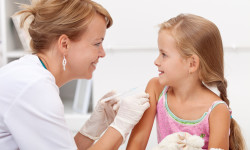The Verdict Is In…

We are lucky to live in an era when the entire library of human knowledge is just a few clicks away.
But anyone who has paid a visit to the Internet also knows you can’t believe everything you read. Despite extensive evidence to the contrary, skepticism about the necessity of childhood vaccines is one of the more dangerous beliefs that continues to propagate online.
But how many people are truly convinced that vaccines cause autism (which they don’t), or that their decision not to get vaccinated can’t impact anyone else (which it does)?
According to Pew Research Center, not many.
Almost 90 percent of American adults believe the benefits of childhood vaccines outweigh the risks. Unsurprisingly, respondents with high degree of science knowledge and those with a college or postgraduate degree were far more likely to identify vaccines as having a high preventive health benefit. Parents of children over the age of 5 (i.e. those whose children have likely already been vaccinated, with no consequences) are also far more likely to hold a positive opinion of childhood vaccines.
The relative confidence in vaccines is promising, especially when you consider the litany of evidence in their support. Just two generations ago, polio infected 60,000 American children, leaving thousands dead and thousands more paralyzed. Today, the disease has been eliminated from the U.S. due entirely to aggressive vaccination efforts. UNICEF even estimates that in total, vaccines save 5 million people each year.
In another promising revelation, Pew discovered that only 6 percent of respondents believe our elected officials should have a major policy role in vaccine issues. We’ll cheer that small victory, especially when you consider our nation’s president solicited the opinion of two notorious vaccine critics while considering a national health strategy. Yeesh.





